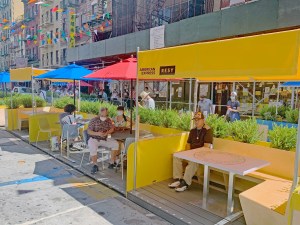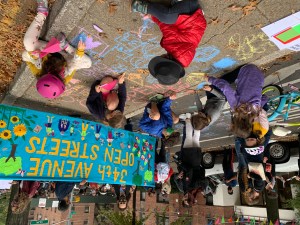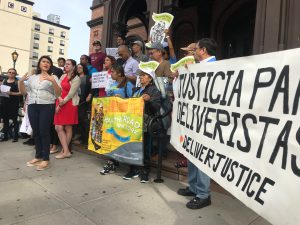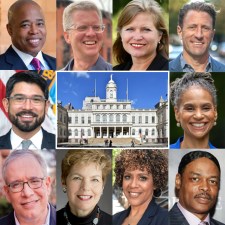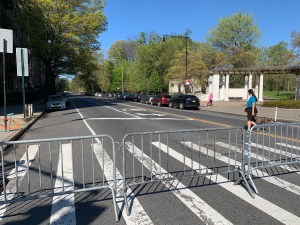Progressive Pols: Make Open Streets Permanent — and Extend Them to Retail
Stringer and Ramos team up in letter to mayor as momentum for public space builds.
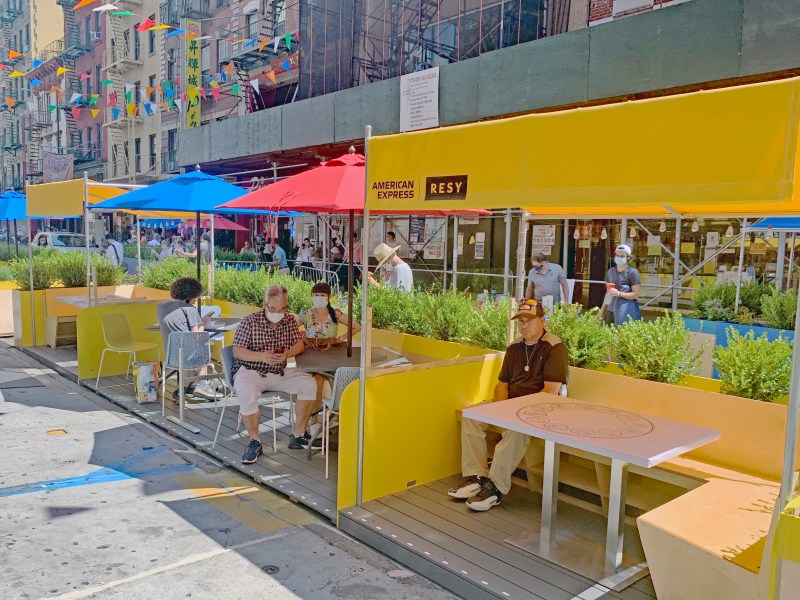
The city must make the Open Streets/Open Restaurants program a year-round affair — and extend it to retail businesses such as clothing stores, bodegas, and nail salons, two leading progressive lawmakers argued on Thursday.

City Comptroller (and declared mayoral candidate) Scott Stringer and State Sen. Jessica Ramos of Queens wrote Mayor de Blasio on Thursday to express their “disappointment” that the programs would cease at the end of October, saying that they should not only become permanent but must be expanded.
“We urge your administration to instead double down on the program by opening up larger swaths of city streets, reopening streets that have been returned to automobile use, and allowing for more kinds of small business, including retail, to participate in the program,” the pair wrote, adding that the end of the programs would “needlessly imperil struggling restaurants and deprive New Yorkers of safe outdoor dining experiences.”
The letter shows the building momentum of the Open Streets/Open Restaurants programs, which have transformed city life even as New York struggles to keep virus infections low. The open streets and al fresco dining have given COVID-weary New Yorkers an important respite from their claustrophobic apartments — and have provided a lifeline for eateries, many more of which would have failed without the ability to serve out of doors.
It also dovetails with the mission of a new civic group, CityRise, that just formed to push for the extension of Open Streets, bike networks, and high-occupancy vehicle and bus lanes in a bid to forestall a wholesale descent into a traffic-clogged, post-COVID future, what some are calling “carmageddon.“
CityRise is reaching out to not-for-profits, business-improvement districts and other civic leaders as it seeks to build a broad base of support for the policies — which are crucial to keeping alive businesses.
Citing city statistics that “Open Streets: Restaurants” had saved 90,000 jobs and enabled more than 10,000 restaurants to remain open, Stringer and Ramos rued that the Department of Transportation “has begun to systematically return streets to automobile usage.”
“These actions send the wrong message to communities and deprive New Yorkers of the accessible outdoor space that they crave now more than ever,” they wrote.
Moreover, according to the pair, “New York has already lost more than 2,800 small businesses to the pandemic and could risk losing tens of thousands more. With foot traffic in New York City still down by a third, it is crucial that our City think creatively about how to support our small businesses. … There are simply no good reasons why small businesses across the five boroughs could not be afforded the same benefits as our restaurants when it comes to leveraging outdoor space in a way that is safe and effective for customers and business owners alike.”
Among the open streets the pair would like to make permanent are Margaret Corbin Drive in Fort Tryon Park, 50th Avenue in Sunnyside, and “the miles of others like them which have been either explicitly pulled from the program or are not functional due to improper and inconsistent set up.”
